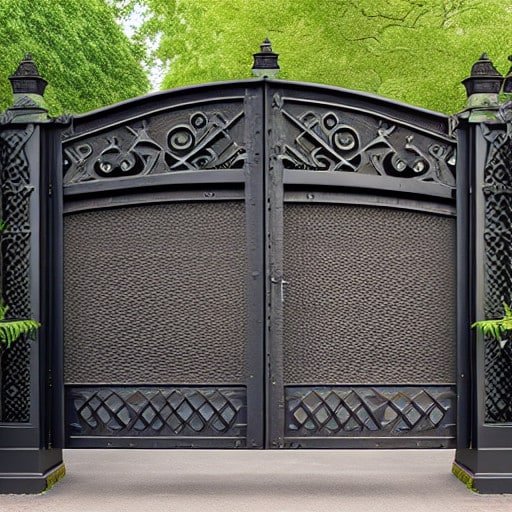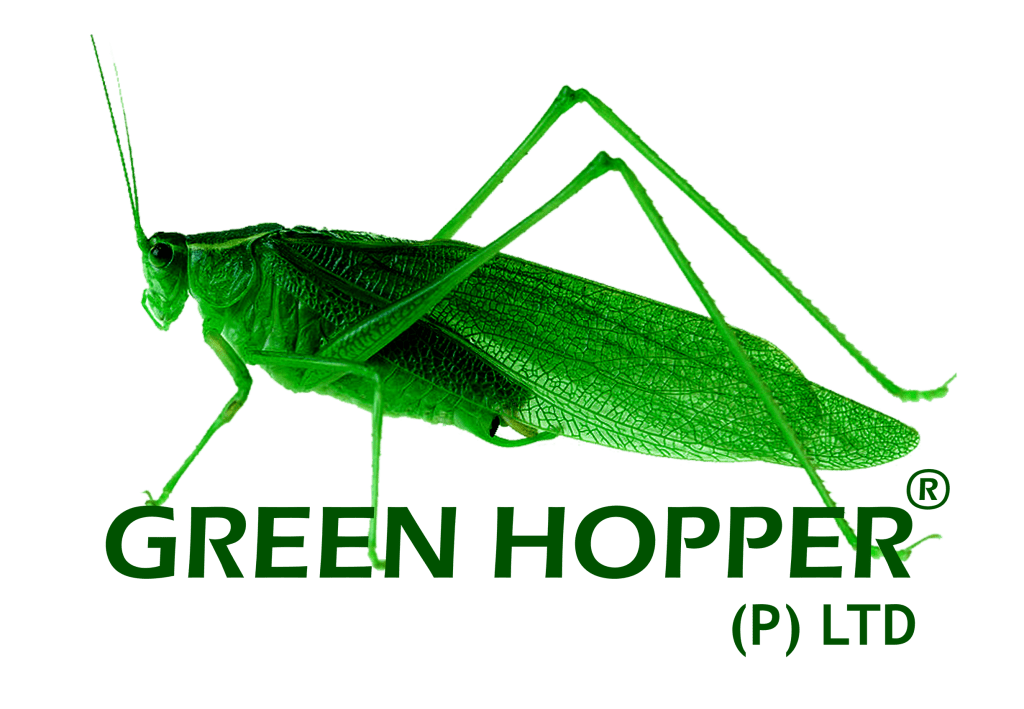What to Look for When Buying a Cast Iron Gate: Expert Tips

There’s something timelessly elegant about a cast iron gate standing sentinel at the entrance of a property. More than just a security feature, these gates make a powerful first impression and can dramatically enhance your home’s curb appeal. But with so many options available in the Kerala market today, how do you choose the right one?
As Kerala’s leading authority in gates with over 20 years of experience crafting and installing premium cast iron gates, we at Green Hopper have put together this comprehensive guide to help you make an informed decision.
Table of Contents
- Why Cast Iron Gates Remain Popular in Kerala
- Design and Aesthetics: Finding Your Style
- Material Quality: Not All Cast Iron Is Created Equal
- Climate Compatibility: Essential for Kerala’s Weather
- Rust Protection: Non-Negotiable in Our Climate
- Customization Options: Making It Uniquely Yours
- Installation Requirements
- Maintenance Considerations
- Budget and Long-Term Value
- Security Features: Protection Without Compromise
- Manufacturer Reliability: Choosing a Trusted Partner
- Green Hopper: Kerala’s Cast Iron Gate Specialists
- Making Your Decision: Next Steps
- Contact Green Hopper for Expert Guidance
- Frequently Asked Questions
Why Cast Iron Gates Remain Popular in Kerala
Despite newer materials entering the market, cast iron gates continue to be a preferred choice across Kerala for several compelling reasons:
- Unmatched durability– When properly maintained, cast iron gates can last for generations
- Superior security– The robust nature of cast iron provides excellent protection
- Timeless aesthetic appeal– Few materials match the classic elegance of ornate cast iron
- Value appreciation– Quality cast iron gates can actually increase property value
- Weather resistance– When properly treated, they withstand Kerala’s challenging climate
Let’s dive into what you should consider when investing in a cast iron gate for your Kerala home.
Design and Aesthetics: Finding Your Style
The design of your gate should complement your property’s architectural style while reflecting your personal taste.
Traditional vs. Modern Patterns
Traditional Kerala homes often pair beautifully with gates featuring intricate scrollwork and classical motifs. Modern properties, meanwhile, might benefit from cleaner lines and contemporary geometric patterns.
At Green Hopper, we’ve observed that many Kerala homeowners are now requesting fusion designs—traditional patterns with a modern twist—creating truly unique entrances that honor Kerala’s rich architectural heritage while embracing contemporary aesthetics.
Size and Proportions
A common mistake is choosing a gate that’s disproportionate to your property. A massive, ornate gate might overwhelm a modest home, while a small, simple gate might look underwhelming before a grand residence. Consider your entrance width, wall height, and overall property scale before deciding.
Material Quality: Not All Cast Iron Is Created Equal
This is perhaps the most critical factor affecting longevity and appearance:
Pure Cast Iron vs. Mixed Alloys
True cast iron gates offer superior durability and that distinctive classic appearance. However, many manufacturers now use iron mixed with other metals to reduce costs. While these can still be sturdy, they often lack the characteristic strength and texture of pure cast iron.
Green Hopper exclusively uses high-grade cast iron with optimal carbon content (3-3.5%) for the perfect balance of strength and workability—ideal for Kerala’s climate conditions.
Thickness and Weight
Quality cast iron gates have substantial thickness (typically 12-16mm for main frames). When examining gates, pay attention to the weight—a properly constructed cast iron gate should feel solid. Lightweight options often indicate thinner material or hollow sections that compromise durability.
Climate Compatibility: Essential for Kerala’s Weather
Kerala’s unique climate poses specific challenges for metal installations:
Humidity and Rainfall Considerations
Our coastal areas experience high humidity and monsoon seasons that can accelerate rusting if gates aren’t properly treated. Look for gates with:
- Hot-dip galvanizing– This process creates a zinc coating that prevents iron from coming into contact with moisture
- Multiple protective layers– Quality gates should have at least 3-4 protective coatings
- Marine-grade finishes– Especially important for properties near Kerala’s coastline
Green Hopper’s “Weather-Shield” technology specifically addresses Kerala’s climate challenges with specialized protective treatments that have proven effective even in coastal areas like Kochi and Kovalam.
Rust Protection: Non-Negotiable in Our Climate
Cast iron’s primary vulnerability is rust, particularly relevant in Kerala’s humid environment:
Effective Protection Methods
- Galvanizing– Creates a sacrificial zinc layer that protects the iron beneath
- Powder coating– Provides excellent durability and color retention
- Anti-rust paint systems– Modern formulations offer exceptional protection
- Regular maintenance coatings– Extends gate lifespan significantly
Customization Options: Making It Uniquely Yours
Your gate should reflect your personal aesthetic while meeting practical needs:
Personalization Elements
- Custom engraving– Family names, house numbers, or unique motifs
- Decorative elements– Finials, medallions, and custom scrollwork
- Integrated lighting– Enhancing security and visual appeal
- Smart features– Preparation for future automation
Our design team at Green Hopper works closely with clients to create truly bespoke gates, often incorporating elements from Kerala’s rich cultural heritage like traditional Tharavadu designs or contemporary interpretations of classical Kerala architecture.
Installation Requirements
Even the finest gate will fail to perform if improperly installed:
Foundation and Support
Cast iron gates require robust support structures. The posts or pillars must be properly engineered to handle the significant weight (typically 150-300kg for a standard driveway gate). For larger designs, reinforced concrete foundations are essential.
Professional Fitting
Professional installation ensures proper alignment, smooth operation, and weather sealing. Green Hopper’s installation teams are specifically trained in proper weight distribution techniques that prevent sagging—a common issue with improperly installed cast iron gates.
Maintenance Considerations
Understanding the maintenance requirements helps set realistic expectations:
Routine Care
Quality cast iron gates require periodic inspection and touch-ups, typically:
- Annual inspection for rust spots or paint damage
- Lubrication of hinges and moving parts every 3-4 months
- Complete refinishing every 7-10 years depending on exposure
Green Hopper offers annual maintenance contracts that have helped many of our installations maintain their beauty for decades—some of our earliest gates in Trivandrum, installed over 15 years ago, still operate flawlessly today.
Budget and Long-Term Value
Cast iron gates represent a significant investment:
Price Range Understanding
In Kerala, quality cast iron gates typically start at 50,000 for pedestrian gates and can reach ₹3,00,000 or more for elaborate driveway gates with automation. While this exceeds the cost of aluminum or steel alternatives, the longevity often makes them more economical over time.
Value Calculation
When evaluating cost, consider:
- Anticipated lifespan (30+ years for quality cast iron)
- Maintenance requirements and costs
- Energy efficiency from proper property sealing
- Property value enhancement
- Security benefits
Comparison of Gate Materials for Kerala Homes
Feature | Cast Iron | Wrought Iron | Steel | Aluminum |
Initial Cost | High (₹45,000-₹3,00,000) | Very High | Moderate | Low to Moderate |
Lifespan in Kerala Climate | 25-30+ years | 20-25 years | 15-20 years | 10-15 years |
Maintenance Requirements | Moderate | Moderate | High | Low |
Weight | Very Heavy | Heavy | Moderate | Light |
Design Possibilities | Excellent for intricate patterns | Limited to simpler designs | Good | Good |
Rust Resistance | Needs proper treatment | Needs proper treatment | Moderate | Excellent |
Security Level | Excellent | Excellent | Good | Fair |
Kerala Climate Suitability | Excellent with proper coating | Good | Moderate | Good |
Value Appreciation | High | High | Moderate | Low |
As this table demonstrates, while cast iron gates require a higher initial investment, their superior lifespan and value appreciation make them the most cost-effective choice for Kerala homes in the long run, especially with proper climate protection.
Security Features: Protection Without Compromise
Your gate is your first line of defense:
Protective Elements
- Height considerations– Minimum 5.5-6 feet for optimal security
- Top treatments– Deterrent finials or spikes (where permitted by local regulations)
- Locking mechanisms– From traditional to smart security options
- Anti-lift hinges– Preventing gates from being removed
Green Hopper’s security consultants can help assess your specific needs and recommend appropriate security features without compromising aesthetic appeal.
Manufacturer Reliability: Choosing a Trusted Partner
The company behind your gate matters as much as the gate itself:
What to Look For
- Industry experience– Particularly in Kerala’s unique climate conditions
- Portfolio of completed projects– Evidence of consistent quality
- Warranty terms– Comprehensive coverage indicates confidence
- After-sales service– Maintenance support and spare parts availability
Green Hopper: Kerala’s Cast Iron Gate Specialists
At Green Hopper, we’ve spent over 15 years perfecting the art and science of cast iron gates specifically for Kerala properties. Our unique offerings include:
- Climate-Specific Engineering– Gates designed explicitly for Kerala’s varied microclimates
- Custom Design Service– Bringing your vision to life with our expert craftsmanship
- Weather-Shield Technology– Our proprietary rust protection system developed specifically for coastal areas
- Lifetime Support Promise– We stand behind our work for decades, not just years
Making Your Decision: Next Steps
Choosing the perfect cast iron gate represents a significant investment in your property’s security, appearance, and value. We recommend:
- Assess your specific needs– Security requirements, aesthetic preferences, and budget
- Research potential suppliers– Look for established companies with proven Kerala experience
- Request detailed quotes– Ensure they include materials, finishing, installation, and warranty
- Visit showrooms or completed installations– Nothing replaces seeing the quality firsthand
Contact Green Hopper for Expert Guidance
Our team of cast iron specialists is ready to help you navigate this important decision
📞 Ready to build your dream entrance? Contact Green Hopper today for a personalized quote or visit our showroom to explore our other gate models
Let us help you create an entrance that provides security, enhances your property’s value, and makes a statement for generations to come.
Frequently Asked Questions
How do I know if a gate is made of pure cast iron?
Pure cast iron has a distinctive appearance with slight surface texture variations. It’s substantially heavier than mixed alloys and produces a characteristic deep, resonant sound when tapped with a metal object. At Green Hopper, we provide material certification for all our gates, confirming their composition.
Can I automate a cast iron gate later?
Yes, but it’s more cost-effective to plan for automation during initial installation. We recommend installing gates with automation-compatible hinges and leaving conduits for future electrical connections even if you’re not automating immediately. Green Hopper’s “Automation-Ready” design includes reinforced mounting points and balanced construction that facilitates later conversion.
What’s the average life of a cast iron gate in coastal areas of Kerala?
With proper protection and maintenance, our cast iron gates last 25-30+ years even in coastal areas like Kochi and Varkala. The key is proper initial treatment and regular maintenance. Our coastal installations feature additional protective layers and specialized marine-grade finishes that substantially extend lifespan.
How do cast iron gates compare to wrought iron gates?
While often confused, these are different materials with distinct properties. Cast iron is poured into molds, allowing for more intricate designs but with less tensile strength. Wrought iron is worked by hand, offering excellent tensile strength but limiting design complexity. For most Kerala homes, cast iron provides the ideal balance of decorative potential and durability.
How often do cast iron gates need repainting?
In Kerala’s climate, quality cast iron gates typically need repainting every 7-10 years, though coastal properties may require attention every 5-7 years. Green Hopper’s maintenance service includes inspection every two years with touch-ups as needed, substantially extending the period before complete refinishing is necessary.
Can cast iron gates withstand Kerala’s monsoons?
Absolutely, when properly treated. Our gates feature sealed joints, drainage channels, and multiple protective layers specifically designed for monsoon conditions. Many of our installations have weathered over 15 monsoon seasons without significant deterioration.
Related articles
Stainless Steel Gate Prices: Complete Cost Breakdown for 2025
How to Prevent and Remove Rust from Cast Iron Gates: A Comprehensive Guide
Cast Iron Gates vs Stainless Steel Gates: A Comparative Guide
Cast Iron Gates Maintenance: Tips to Keep Your Gate Looking Timeless
What is the Difference Between Cast Iron Gates and Wrought Iron Gates?

